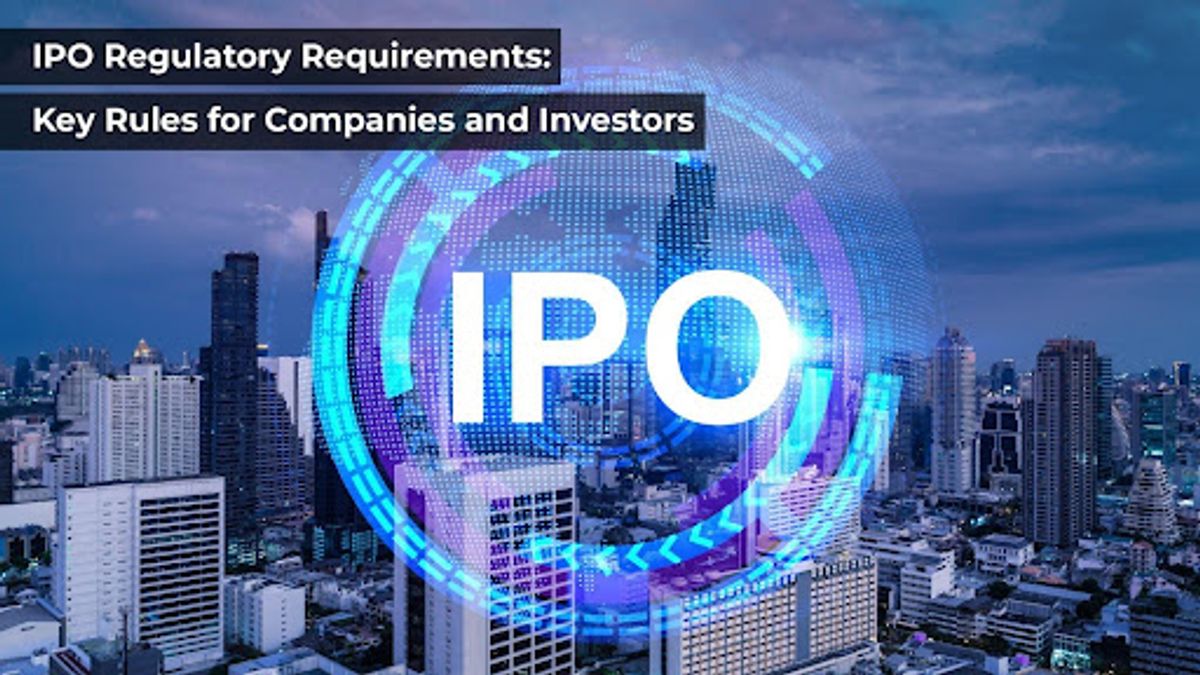The Indian IPO (Preliminary Public Providing) area is extremely regulated, bearing in mind investor pursuits. The method of itemizing and going public is topic to a stringent regulatory framework designed to guard investor pursuits and guarantee market integrity. The Securities and Trade Board of India (SEBI) is the first regulatory physique overseeing IPOs in India, and it has established a complete algorithm and rules that firms and buyers should adhere to.
Proper from in search of approval for IPO launch, to supply buying and selling, there are regulatory eyes taking care of investor’s consciousness and safeguarding their curiosity.
Regulatory Necessities For Firms
Proper from planning to make their entry into the market, firms must set their foot proper when it comes to curiosity or the buyers. There are quite a few particulars, numbers and extra that have to be scrutinised earlier than an IPO will be accepted and a valuation will be finalised.
Firms planning to go public should navigate a fancy regulatory landscape-
Earlier than submitting the Draft Pink Herring Prospectus (DRHP), firms should guarantee compliance with numerous regulatory norms, together with acquiring needed approvals, conducting due diligence, and appointing service provider bankers.
The DRHP, an in depth doc outlining the corporate’s enterprise, financials, administration crew, and danger elements, should be filed with SEBI and inventory exchanges for assessment and approval. SEBI conducts an intensive scrutiny of the DRHP to evaluate the corporate’s monetary well being, administration integrity, and disclosure requirements. Any deficiencies or inconsistencies recognized might result in delays or rejection of the IPO.
To guard investor pursuits, firms should undertake investor schooling and consciousness packages to make sure that potential buyers perceive the dangers and rewards related to investing within the IPO.
The ultimate supply worth of the IPO is set by means of a worth discovery course of, which can contain a book-building course of or a fixed-price mechanism. SEBI has particular pointers to make sure truthful worth discovery and allotment of shares to buyers.
After the IPO, listed firms stay topic to steady regulatory oversight. They have to adhere to well timed disclosure of economic info, company governance norms, and insider buying and selling rules.
By complying with these rules, firms can keep market integrity and construct long-term investor belief.
Regulatory Necessities For Buyers
So, what’s for the buyers? Can they merely open free demat account and get shares in an IPO? No, investing in an IPO is a relatively prolonged course of than investing in a listed inventory. Furthermore, an investor might or might not get shares in an IPO whereas itemizing. Buyers collaborating in IPOs should additionally pay attention to their rights and obligations. However which buyers are we speaking about right here? There are numerous forms of IPO buyers like retail buyers, institutional buyers, and different eligible entities. SEBI has labeled buyers into numerous classes, every with particular regulatory necessities.
Retail Particular person Buyers (RIIs)
These are common buyers who subscribe to a variety of IPO tons as per the IPO restrict and their monetary capability. Sure, RIIs are people who make investments as much as a sure restrict. As talked about earlier, they’re topic to numerous investor safety measures, akin to minimal utility dimension, allotment precedence, and lock-in durations.
Certified Institutional Consumers (QIBs)
QIBs are institutional buyers, akin to mutual funds, insurance coverage firms, and banks, that meet particular eligibility standards. They’re topic to stricter regulatory norms, together with larger funding limits and disclosure necessities.
Non-Institutional Buyers (NIIs)
NIIs are people and entities that don’t fall beneath the classes of RIIs or QIBs. They’re topic to particular funding limits and eligibility standards.
Dealing With The Gray
For those who open your choices buying and selling app or shares app, you would possibly discover information on the present GMP of a inventory. However what’s the gray market and is it regulated? The gray market being an off-the-cuff market isn’t a regulated one. Which means, the gray market, an off-the-cuff platform the place IPO shares are traded earlier than their official itemizing, operates exterior the purview of SEBI’s direct regulation. Whereas the Gray Market Premium (GMP) can supply insights into market sentiment, it’s important to method it with warning. SEBI’s affect on the gray market is oblique, however its oversight of the IPO course of goals to minimise the impression of speculative actions.
Major Regulatory Focus
SEBI’s main focus lies in regulating the formal IPO course of, guaranteeing truthful worth discovery by means of mechanisms just like the book-building course of. The regulator additionally prioritises investor safety, implementing strict disclosure necessities, investor schooling, and anti-fraud measures.
Moreover, SEBI actively screens the marketplace for irregularities, together with worth manipulation and insider buying and selling.
Regulatory compliance is paramount in IPOs because it ensures transparency, truthful practices, and investor safety. By adhering to SEBI’s rules, companies keep credibility and construct investor belief. Compliance safeguards towards fraudulent actions, worth manipulation, and insider buying and selling. It additionally ensures that buyers have entry to correct and well timed info, enabling them to make knowledgeable selections. In the end, regulatory compliance fosters a wholesome and environment friendly capital market, benefiting each firms and buyers.
Conclusion
In your demat app, you may need discovered about numerous upcoming IPOs and may additionally be eager in IPO investing. Nonetheless, it’s essential to method them with a discerning eye. Understanding the regulatory framework, significantly SEBI’s pointers, is crucial for knowledgeable decision-making. By familiarising themselves with elements like valuation, firm fundamentals, market sentiment, and the position of gray market premiums, buyers can navigate the complexities of IPO investing. Exercising due diligence and studying analysis, information and rankings rigorously may also help mitigate dangers and maximise potential returns in IPO investing.
Improve to a greater investing expertise with HDFC Sky and put money into IPOs, shares, mutual funds, ETFs, and way more in a single place.
Written with the View : afaqs
